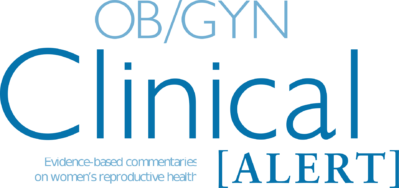
OB/GYN Clinical Alert – September 1, 2020
September 1, 2020
View Issues
-
Is Vaginal Progestogen Equivalent to Intramuscular Progestogen for Preventing Preterm Birth in High-Risk Women?
In this open-label, equivalence randomized trial of vaginal progestogen compared to intramuscular progestogens for preventing preterm birth in high-risk women, the difference in the risk of preterm birth at < 37 weeks of gestation between both groups was 3.1% (95% confidence interval, -7.6% to 13.8%), which was within the equivalence margin of 15% used in the study.
-
Apical Suspension at the Time of Vaginal Hysterectomy
The main objective of this study was to determine whether the use of apical suspension at the time of vaginal hysterectomy varies by surgeon specialty.
-
Maternal and Pregnancy Characteristics Associated with Periviable Interventions
In this case control study using U.S. live birth records between 22 and 23 weeks of gestation, maternal intervention was positively associated with increasing maternal age, Medicaid use, preeclampsia, birth defects, twin gestation, multiparity, and infertility treatments while being negatively associated with non-Hispanic Black race. Positive associations for neonatal intervention included non-Hispanic Black race, preeclampsia, Medicaid use, infertility treatments, less than a high school education, increasing maternal age, and twin gestation, and negative associations included birth defects and small for gestational age pregnancies.
-
Etonogestrel Contraceptive Implant and VTE in Postpartum Women
In this national retrospective cohort study of postpartum women, use of the etonogestrel contraceptive implant immediately postpartum was not associated with an increased rate of readmission for venous thromboembolism within 30 days of delivery.
